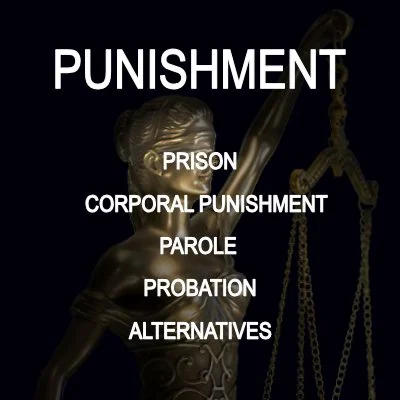By Michelle Kirby
The Family Violence Education Program is Connecticut’s pretrial program that gives eligible defendants the chance to attend programs that provide education about family violence instead of going to trial. Any defendant who wants to take part in the program must submit an application to the court. If the court grants the defendant’s application, he or she must take part in nine, 90- minute sessions of a psycho-educational class that is focused on reducing any future family violence. If the defendant completes this program successfully and follows any other conditions set by the court while he or she is taking part in the program, the court will dismiss the charges against the defendant. Classes are offered all over the state by judicial branch-contracted community providers
OLR Research Report, Hartford: Connecticut General Assembly , Office of Legislative Research , 2023. 4p.
PUNISHMENT
PUNISHMENT-PRISON-HISTORY-CORPORAL-PUNISHMENT-PAROLE-ALTERNATIVES. MORE in the Toch Library Collection
Edited by Charles Richmond Henderson, Ph.D.
“The chaplain at Sing Sing testified that in eighteen years he had served under nine different wardens. Under the contract system, in the words of Dr. Theodore W. Dwight, "Convict labor becomes substantially slave labor, with many of its concomitant evils. Its rule is the same; the largest amount of work for the smallest return." The objections to that system may be tersely stated, as follows: ( 1) The farming-out of governmental rights and powers to private parties is contrary to public policy. What the government undertakes to do, it alone should do. The presence of the contractor in the prison leads to divided responsibility. (2) The financial interest of the contractor is a selfish interest. The prison wishes to sell its labor at a high rate; the contractor desires to buy it at the lowest possible price. The state wants a fair division of the profits of the establishment; the contractor cares little whether the state makes or loses money on the deal, if he can enrich himself. (3) The political connections and power of the contractor are often such as to enable him to dictate the selection of the managers and warden of the prison.
The Russell Sage Foundation, 1910, 168 p.



